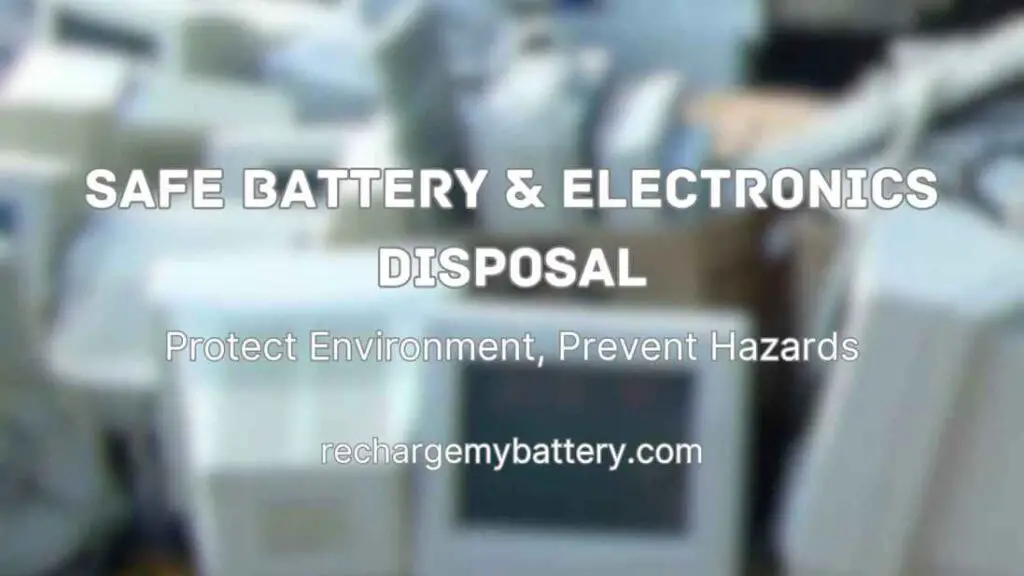Introduction
In our tech-driven world, batteries are the lifeblood of our devices. But have you ever wondered why you can’t simply recharge any battery? This comprehensive guide delves into the intricacies of battery technology, shedding light on why attempting to recharge normal batteries can lead to disastrous consequences. Join us on this enlightening journey to understand the science behind it all.
Understanding Battery Chemistry
The Essence of Battery Chemistry
To grasp why you can’t recharge normal batteries, it’s crucial to fathom their fundamental chemistry. Normal batteries, often referred to as disposable or primary batteries, are designed for one-time use. Their chemical composition is optimized for a single discharge cycle, rendering them unsuitable for recharging.
Lithium-Ion vs. Alkaline: What Sets Them Apart
Diving deeper, we explore the distinctions between lithium-ion and alkaline batteries. While lithium-ion batteries are rechargeable due to their unique chemistry, alkaline batteries lack this capability. Attempting to recharge alkaline batteries can lead to leaks, ruptures, and even explosions.
The Dangers of Recharging Normal Batteries
Overheating and Combustion Risks
One of the primary dangers associated with attempting to recharge normal batteries is the risk of overheating. The chemical reactions that occur during recharging can generate excessive heat, potentially leading to combustion. Safety should never be compromised for convenience.
Leaking Electrolytes: A Recipe for Disaster
Normal batteries contain a corrosive electrolyte solution. When subjected to the recharging process, the delicate balance within the battery is disrupted, leading to electrolyte leakage. This not only damages the battery but poses a serious safety hazard.
The Science Behind Rechargeable Batteries
Embracing Rechargeable Battery Technology
Unlike normal batteries, rechargeable batteries are engineered with a different chemical composition. This enables them to undergo multiple charge and discharge cycles without compromising performance. Understanding this distinction is vital for responsible battery usage.
How Rechargeable Batteries Work Their Magic
Delving into the inner workings of rechargeable batteries, we uncover the ingenious mechanisms that allow them to store and release energy efficiently. This knowledge empowers us to make informed decisions about battery selection.
Proper Storage Techniques for Batteries
The Importance of Proper Storage
Ensuring the longevity of your batteries involves more than just responsible usage. Proper storage is equally crucial. Store batteries in a cool, dry place away from direct sunlight and extreme temperatures. Avoid keeping them in close proximity to metal objects, as this can lead to unintended discharge.
Avoiding Common Storage Mistakes
One common error is leaving batteries in devices for extended periods of inactivity. This can lead to corrosion and reduced performance. When storing batteries for an extended period, consider removing them from the device to prevent any potential damage.
Choosing the Right Battery Charger
Understanding Battery Charger Types
Selecting the right charger is pivotal for the optimal performance of rechargeable batteries. Different types of chargers are designed for specific battery chemistries. For instance, a NiMH battery requires a charger compatible with NiMH technology. Using the wrong charger can result in reduced battery life and potential safety hazards.
Smart Chargers: A Wise Investment
Investing in a smart charger can be a game-changer for rechargeable battery users. Smart chargers monitor the charging process, automatically adjusting the voltage and current to prevent overcharging. This not only extends battery lifespan but also ensures safety during the charging process.
Sustainable Disposal Practices
The Environmental Impact of Improper Disposal
Improperly disposing of batteries can have severe consequences for the environment. Batteries contain hazardous materials, including heavy metals, which can contaminate soil and water sources if not recycled correctly. Responsible disposal is a shared responsibility for safeguarding our planet.
Finding a Recycling Center Near You
Fortunately, many communities have established recycling centers that accept batteries. Check with your local waste management facility or consult online resources to locate the nearest recycling drop-off point. By taking this simple step, you contribute to a cleaner, more sustainable future for generations to come.
Conclusion
In the realm of batteries, knowledge is power. Understanding why you can’t recharge normal batteries is not only a matter of safety but also a step towards responsible energy consumption. Embrace the marvels of rechargeable battery technology, and let’s power the future together.

